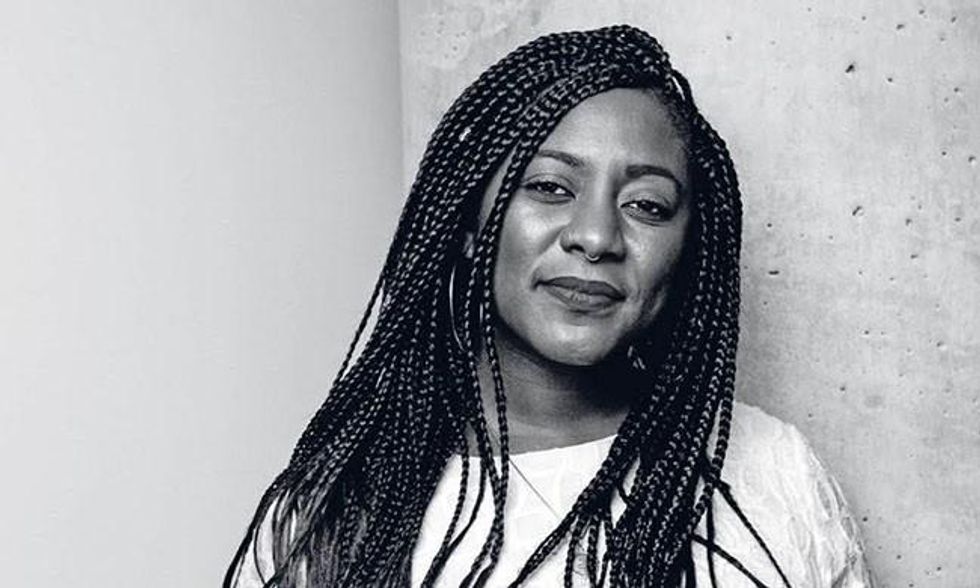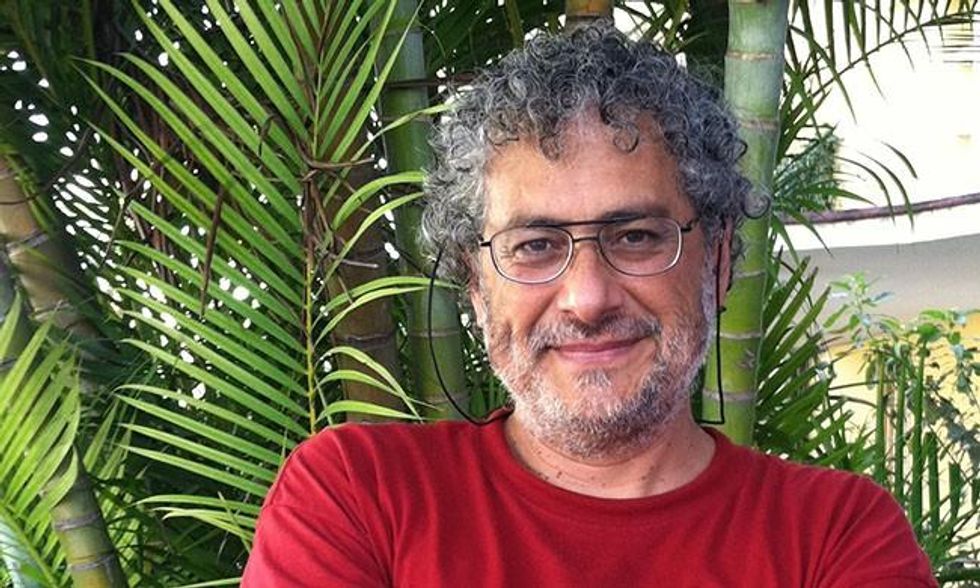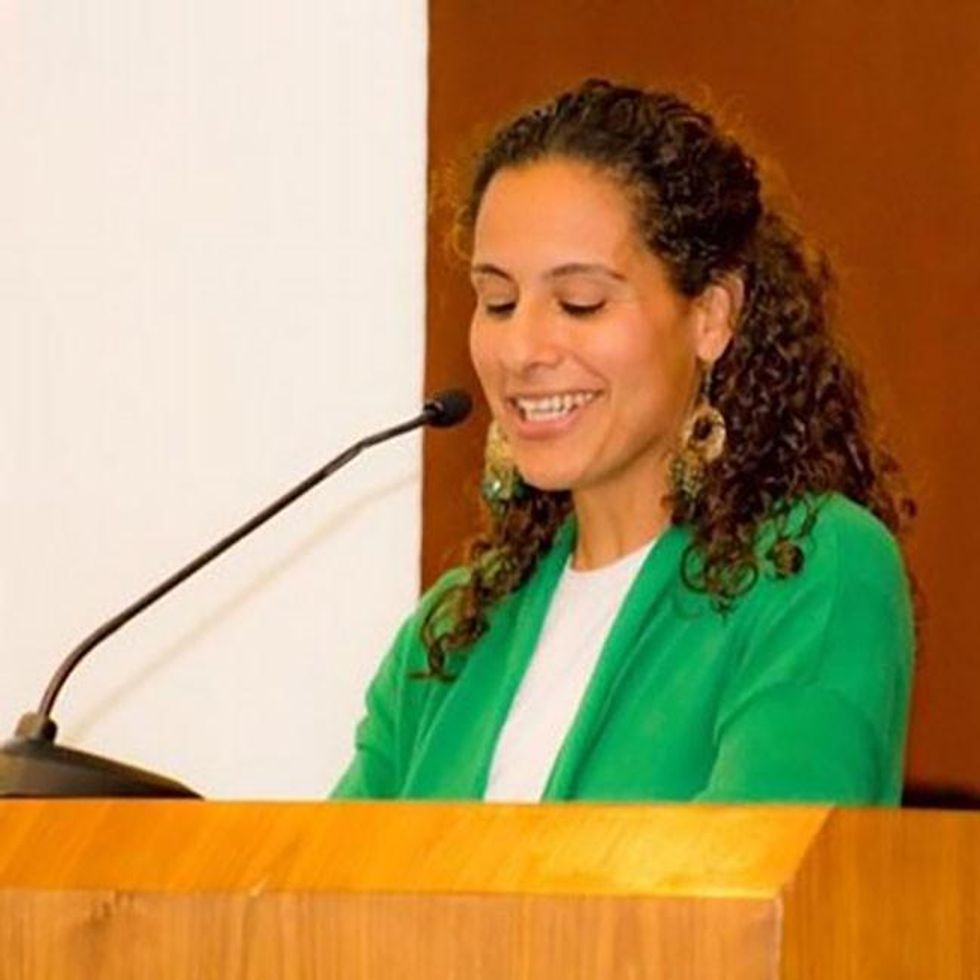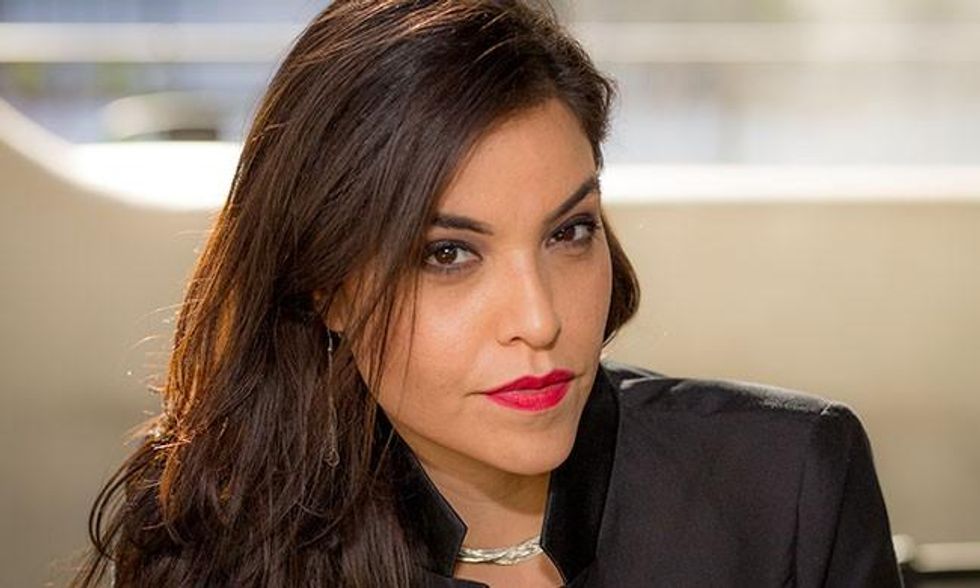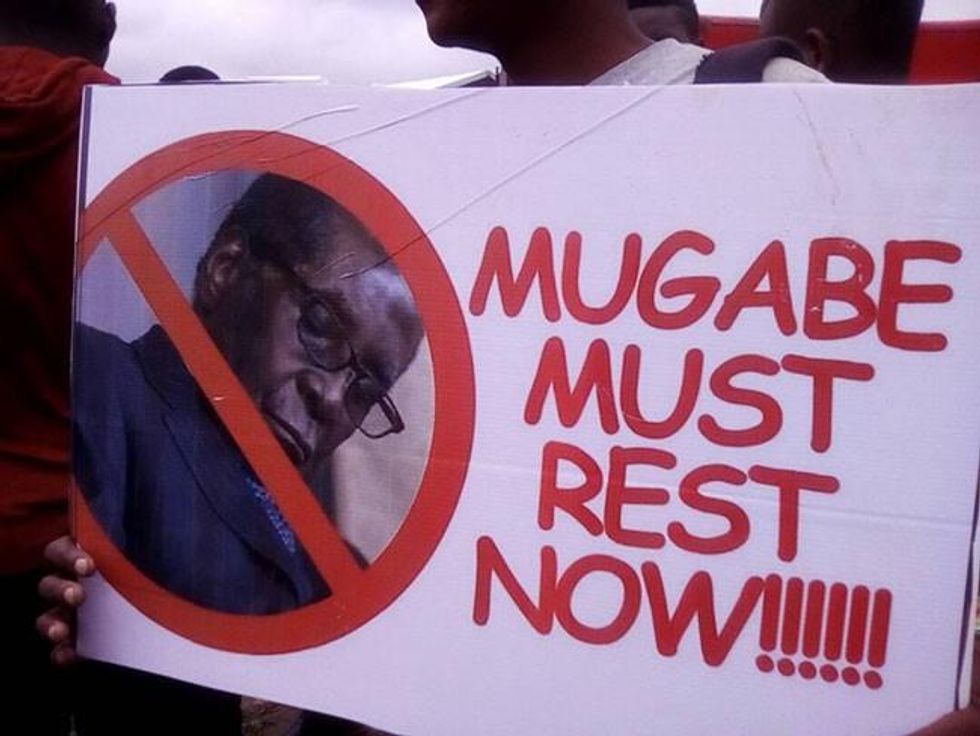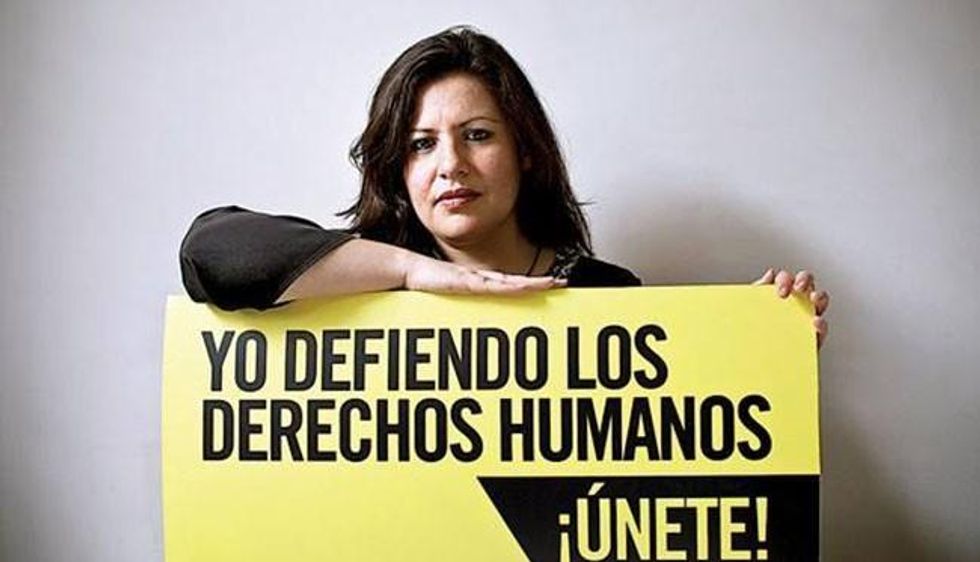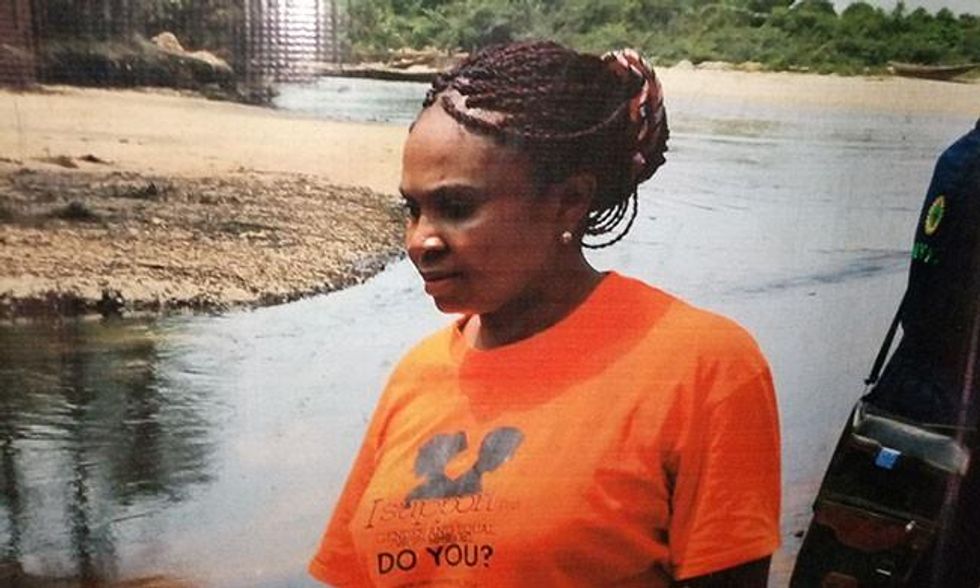Across the globe, 2017 brought us to new lows. Yet, even as crisis after crisis shook us to the ground, they also inspired many to rise up and take to the streets and other venues of popular power. Donald Trump as president awakened millions, sparked new cross-sectoral coalitions, and galvanized people to creative and effective action.
Across the world, those who never had the luxury of complacency continued their struggles for participatory democracy; economic justice; an end to wars and violence; protection of the global commons; the rights and security of women, LGBTQ folk, and other excluded populations; and an end to theft and plunder of indigenous and small-farmer lands.
Here, nine movement leaders share their hopes for the new year. From the head of Greenpeace USA to an opponent of patriarchal capitalism in Zimbabwe, these thinkers, strategists, and organizers have made significant contributions to different sectors and continents. And cutting across all their aspirations is a common theme: that solutions to some of the most intractable challenges on the planet will come from people uniting and organizing into powerful movements.
Alicia Garza
Oakland, Calif.-based organizer and co-founder of Black Lives Matter
My hope for 2018 is that Black people are joined by the rest of the nation in solidly rejecting the new regime that has taken power. From suffrage to
voting rights, from anti-Apartheid, emancipation, and #BlackLivesMatter to UndocuBlack and #MeToo, Black people have kept our eyes on freedom. Though we are not mules on whose backs freedom depends, the innovation and vision of Black people is critical, along with the activation of millions who understand that our futures are tied to one another. Let this be the year that sexual harassment and violence is seen through the eyes of Black women, the year that Congress is reorganized, and the year that progressive movements nurture and support Black communities by decisively taking on the fight against anti-Black racism as a fight for all of us. I hope that not another mother loses her child to police violence or the violence of government neglect. I hope a new movement emerges, committed to the fight against anti-Black racism in all its forms and united in pursuit of a future for all of us. I hope this is the year that the current administration is soundly rejected in favor of an interdependent, mutually beneficial global community.
Annie Leonard
Executive director of Greenpeace USA
I have high hopes for the new year, hopes based on the very real momentum building across the country. In 2017, millions of people who have long felt concern about
climate change, increasing inequity, the deterioration of our democracy, and more went from being isolated and angry to united and active. That gives me hope since an inclusive peoples' movement is the best line of defense against those who want to plunder the planet and its people. And that movement is growing more powerful by the day.
Closer to home, I hope that Greenpeace and allies win the lawsuit attempting to shut us up or shut us down. In 2017, Energy Transfer Partners, the company that built the Dakota Access pipeline (the focus of the Standing Rock protest), filed a $900 million SLAPP suit against Greenpeace. This is an attempt to silence and intimidate critics of pipelines and defenders of indigenous rights. I hope 2018 brings a resounding dismissal of this lawsuit, sending a strong message to corporations everywhere that they can't silence constitutionally protected advocacy. Dissent, nonviolent protest, and activism are crucial parts of our democracy, and are needed now more than ever.
Gustavo Castro
Co-coordinator of Friends of the Earth Mexico/Otros Mundos; co-coordinator, Mesoamerican Movement against the Mining Extractive Model (M4)
Responding to advanced capitalism with its savage extractivism in Latin America, organized peoples are resisting with more force, giving hope to the planet and me for the coming year. Electoral, military, and corporate coups d'etat have encountered stronger fight-back from the Left, regardless of the cost to life and liberty; so too have free trade and investment agreements, the vehicles for making gigantic corporate investments in the territories of indigenous people and rural farmers (for everything from drilling and
fracking of oil and gas; mining; monocultural production of African palm and other crops; and shrimp and factory cattle farming). Left movements are also fighting the theft and pillage of lands, waters, and other commons of nature, as well as the infrastructure needed to make huge profits from them, like oil pipelines and dry canals.
If the criminalization of social movements has grown, it is because the resistance continues to grow too, more than ever. In Latin America, people organized into organizations, and movements are defending their human rights, territories, and life.
Samia Shoman
Palestinian American educator in the San Francisco Bay Area
On Dec. 21, when 128 member countries of the United Nations voted with Palestine against the U.S. president's declaration of Jerusalem as the capital of Israel, my hope for Palestine was renewed. This hope grew when popular singer Lorde cancelled, on moral grounds, her upcoming concert in Tel Aviv on Christmas Day. Her announcement revalidated that the Boycott,
Divestment, Sanctions movement, which seeks to end international support for Israel's brutal occupation of Palestine, is growing and working. The action and resilience of Ahed Tamimi, the Palestinian teen activist who stood up to Israeli soldiers' aggression, has filled
Palestinians with hope that there is a new generation leading the resistance.
My hope is that one day soon the American populace will catch up to the international community, which seems more aware of the growing violence and oppression against Palestinians at the hands of the Israeli government and military forces, and more willing to speak out about it. And when the streets of America are filled with people supporting Palestinians' right to self-determination and liberation, this hope will be fulfilled.
Michelle L. Cook
Dine (Navajo) human rights lawyer focused on protecting indigenous rights and territories
The indigenous human rights movement was infused with new energy by the mass mobilization on the ancestral territories of the Standing Rock Sioux Nation in North Dakota, against the Dakota Access pipeline.
There is no tidy ending to that tale. The safety and future of indigenous people, lands, and waters still hang in the balance, and still need the world's full support.
At the same time, Standing Rock sparked a movement to stop international capital from flowing to the Dakota Access pipeline via banks, cities, and pension funds. In 2018 and beyond, indigenous people wielding the divestment tool--with women in the forefront--will be working to stop more financing of harmful projects and corporations.
This promises to be another year of indigenous mobilization to protect ancestral lands from plunder, such as Bears Ears in Utah from uranium mining and Louisiana's Atchafalaya Basin from the Bayou Bridge oil pipeline.
We are hopefully at a turning point in human rights in America, for indigenous self-determination and treaty rights, and for remedy by state and non-state actors. Moving forward from Standing Rock, as after the 1965 civil rights activity in Selma, Alabama, we are in a societal shift that will continue to inspire more just alternatives.
Melania Chiponda
Feminist activist and climate justice campaigner who was part of the Zimbabwean uprising that toppled Robert Mugabe
The march of millions across Zimbabwe on Nov. 18 for our democracy, peace, and economic salvation succeeded in bringing down Mugabe. It was a revolution.
As an African feminist, I marched for something deeper, as well: for the liberation of women, for equality for people from all races, religions, genders, ethnic groups, and classes.
But from a feminist perspective, the real revolution has not yet happened. My dream for 2018 and beyond is for true change, not just for a changing of the guard, from Mugabe to his former henchman, the vicious Emmerson Mnangagwa. If we want to correct the political and economic system, then we should get rid of patriarchal capitalism. I feel trapped where every avenue to power is overwhelmingly male-dominated. A more cooperative and egalitarian economic system cannot be based on male supremacy.
In a world where women are viewed as mothers and caregivers before anything else, and have to overcome strong ideological and political resistance from men to participate in political and economic systems, my hope is that we start a real revolution against patriarchal capitalism.
Greg Asbed
Cofounder of the farmworker-driven human rights and economic justice group the Coalition of Immokalee Workers
There were real glimmers of hope in 2017 that, when seen together, just might be the light at the end of one of the darkest years in this country's history. No glimmer shone brighter here in Immokalee, Florida, where some of this country's poorest, least powerful, most exploited workers found a way by building common cause with consumers, to turn what had been called "ground zero for modern-day slavery" into what is today known as "the best working environment in U.S.
agriculture." Through the Fair Food Program, the Coalition of Immokalee Workers is eliminating longstanding abuses from
sexual assault to forced labor and, in the process, giving farmworkers a real voice in the decisions that shape their lives.
If transformational, worker-led change can happen in Southern agriculture, it can happen anywhere. And that is my hope: that we come together in 2018 and start building the new day in the new year.
Erika Guevara Rosas
Americas director at Amnesty International
Across the Americas throughout 2017, a growing social discontent inspired people to take to the streets and raise their voices for an end to repression, marginalization, and injustice. My inspiration to continue fighting for a better world in 2018 comes from countless small, brave acts by individuals and campaigns and resistance from movements that have and can make a real difference as we stand up to defend human rights.
Inspiration in 2017 came from the massive social movement of Ni Una Menos, or Not One Fewer, denouncing femicide and other violence against women and girls across Latin America. The long struggle of Peruvian activist Maxima Acuna had stopped a mining company that wanted to take over her land; recently, the Peruvian Supreme Court ruled in her favor. The decriminalization of abortion in Chile was a testament to the work of millions of women across the continent. And these are just a few of last year's stories of courage that have profoundly impacted people's lives.
In spite of the repressive response from governments, massive mobilizations in every corner in the region demanding state accountability and respect for human dignity will continue this year to transform the paradigms of power.
Emem Okon
Director of Kebetkache Women Development & Resource Centre, a Nigerian eco-feminist organization battling oil companies
As women in the
Niger Delta, we hope for this for 2018: Nothing about us without us! Throughout this new year, we will be aiming for greater power for the eco-feminist movement as we battle the oil companies who have stolen our lands, degraded the environment and biodiversity, and increased violence. I expect more visibility of women as we take action for the protection, remediation, and restoration of our environment. I anticipate ever-larger women's mobilizations and look forward to deep consultations with women pushing oil companies to conduct Environmental Impact Assessments before commencing activities on their communities' land. I envision the aspirations of community people being recognized and respected by oil corporations. Finally, I take hope from knowing we will push for a women's rights perspective as we engage with and monitor the Sustainable Development Goals, to ensure that no one is left behind and to ensure that government and the oil companies do the right thing.
Beverly Bell wrote this article for YES! Magazine.





